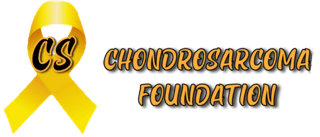Biology and Management of High-Grade Chondrosarcoma: An Update on Targets and Treatment Options
Abstract
This review provides an overview of histopathology, clinical presentation, molecular pathways, and potential new systemic treatments of high-grade chondrosarcomas (CS), including grade 2–3 conventional, dedifferentiated, and mesenchymal CS. The diagnosis of CS combines radiological and histological data in conjunction with patient clinical presentations. Conventional CS is the most frequent subtype of CS (85%) and represents about 25% of primary bone tumors in adults; they can be categorized according to their bone location into central, peripheral, and periosteal chondrosarcomas. Central and peripheral CS differ at the molecular level with either IDH1/2 mutations or EXT1/2 mutations, respectively. CDKN2A/B deletions are also frequent in conventional CS, as well as COL2A1 mutations. Dedifferentiated CS develops when low-grade conventional CS transforms into a high-grade sarcoma and most frequently exhibits features of osteosarcoma, fibrosarcoma, or undifferentiated pleomorphic sarcoma. Their molecular characteristics are similar to conventional CS. Mesenchymal CS is a totally different pathological entity exhibiting recurrent translocations. Their clinical presentation and management are different too. The standard treatment of CSs is wide en-bloc resection. CS are relatively radiotherapy resistant; therefore, doses >60 Gy are needed in an attempt to achieve local control in unresectable tumors. Chemotherapy is possibly effective in mesenchymal chondrosarcoma and is of uncertain value in dedifferentiated chondrosarcoma. Due to resistance to standard anticancer agents, the prognosis is poor in patients with metastatic or unresectable chondrosarcomas. Recently, the refined characterization of the molecular profile, as well as the development of new treatments, allow new therapeutic options for these rare tumors. The efficiency of IDH1 inhibitors in other malignancies suggests that these inhibitors will be part of IDH1/2 mutated conventional CS management soon. Other treatment approaches, such as PIK3-AKT-mTOR inhibitors, cell cycle inhibitors, and epigenetic or immune modulators based on improving our understanding of CS molecular biology, are emerging.
Click here to read the full published article at National Library of Medicine
